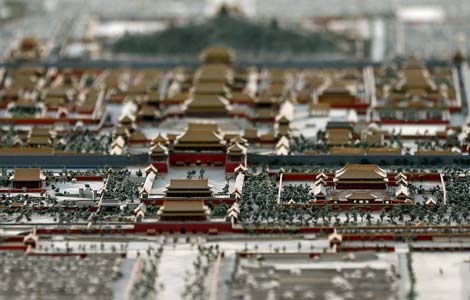The hidden reefs in China-US relations
Updated: 2013-08-23 11:35
By Chen Weihua (China Daily)
|
||||||||
Some Western observers have also argued that banning arms exports to China would only push China to invest more in its military R&D to compete with the West. The US allowed arms sales to China in the 1980s when both saw a common enemy, the Soviet Union.
A Congressional Research Service report by Shirley Kan in May said Congress is looking at whether the Obama administration has complied with legislation overseeing dealings with the PLA and pursued contacts with the PLA that advance a prioritized set of US security interests, especially the operational safety of US military personnel.
The oversight legislation includes the Foreign Relations Authorization Act for FY1990-FY1991 and National Defense Authorization Act (NDAA) for FY2000.
However, skeptics and proponents of military exchanges with the PRC have debated whether the contacts have achieved results in US objectives and whether the contacts have contributed to the PLA's war-fighting capabilities that might harm US security interests. Some have argued about whether the value that US officials place on the contacts overly extends leverage to the PLA, the report said.
Some believe talks can serve US interests that include conflict avoidance, crisis management, military and civilian coordination; transparency and reciprocity; tension reduction over Taiwan; weapons nonproliferation; nuclear/missile/space/cyber talks; counterterrorism; and POW/MIA accounting, according to the report.
Chas Freeman said the US and China must look for common ground rather than common foes, like in the 1980s.
Going forward
While Defense Minister Chang again raised China's concerns on these long-standing issues, the US has not given a clear answer on some of the thorny questions. But Guan indicated that Hagel agreed to set up working groups as a means to seek solutions through active communications.
Hagel also said he and Chang welcomed the recent establishment of the US-China cyber working group as a venue for addressing concerns over that new issue.
Guan said both defense chiefs have realized that when Hagel visits China next year, they should schedule more time to talk.
"There are so many issues, and you can easily talk away one day on one single issue," he said.
Next week, Chang and Hagel will run into each other again at a meeting of Asia-Pacific defense chiefs in Brunei, when a host of other issues, such as denuclearization of the Korean peninsula, the US pivot to Asia and the tension over maritime territorial disputes in the South China Sea and East China Sea, are expected to be in spotlight.
Contact the writer at chenweihua@chinadailyusa.com
(China Daily USA 08/23/2013 page20)
Most Viewed
Editor's Picks

|

|

|

|

|

|
Today's Top News
The hidden reefs in China-US relations
School work: Chinese want less, US more
McCain comments about Diaoyu draw fire
Chinese scientists asked to improve toilet
Bo Xilai denies bribery charges
Experts say police need guns on patrol
Nasdaq resumes stock trading
German mitten crabs not 'qualified for import'
US Weekly

|

|















